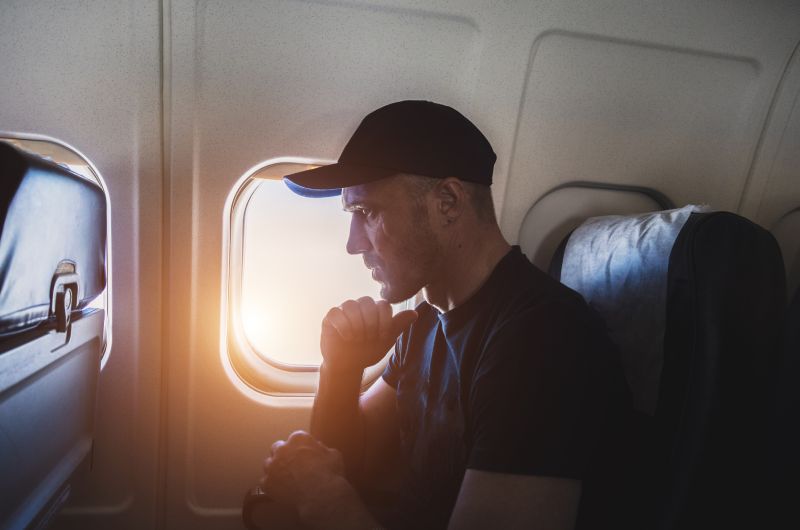For many people there are common characteristics that contribute to a fear of flying.
These thoughts and feelings may have become a learned pattern through a previous flight which may have been turbulent or that for some reason was found particularly scary at the time or from watching a movie or TV program or hearing of someone else’s “story”, or perhaps it may be from having an active imagination and having frightened invasive thoughts.
It is well known that there are many people who fear flying and there are also, increasingly, millions of people who used to fear it, however, no longer do. You can be one of them!
People who find it difficult to relax on planes, can also impact on others. There may be a build- up of anxiety over days or even weeks before a flight, constantly thinking about feeling fearful, and thus associating fear in the mind with flying. This can impact on others as the person tends to become fatigued, irritable and often extremely anxious/short fused to name just a few of the effects that may be experienced. However, there are also practical things that a person can do to help themselves release their fear as they need to travel:
- Stay balanced and clear in the mind – Breathe deeply for four counts, and then release for six, (like blowing up or deflating a balloon);
- Focus on an activity of some kind, perhaps, making yourself comfortable in your seat, stowing away your hand luggage appropriately, or crossing your ankles and also crossing your hands in front of your chest could be useful – be comfortable. Breathe deeply while resting your tongue on the roof of your mouth;
- Eliminate stressful distractions/triggers, for example lower the window shade so you’re not distracted with moving elements;
- Have an awareness of your anxiety. Do mindfulness and meditation exercises daily, for a week or two before a flight;
- Be prepared with soothing activities. Find things that help you stay focused and less anxious - find music that is soothing, read or undertake a word puzzle;
- Aviphobia symptoms may also increase when general anxiety is heightened. It may be helpful to remove additional anxiety-inducing stimulants, such as caffeine, energy drinks, and any other stimulants such as alcohol or sugar;
- Try to identify your fear. Do you fear a loss of control? Is it a fear of death? Is it claustrophobia? Different triggers require different things to help soothe them. ….
- Release the fear. Many people with flight fears also have control issues. ...
Therefore, allow hypnotherapy and counselling to assist you to:
- calm down your emotions around the thoughts and feelings of being fearful of flying and all of its associations;
- allow you to disassociate the fear and allow you to relax, providing you with opportunities to enjoy your life more and maintain that feeling of a deeper sense of balance and stability; no longer feeling the fear; and
- to allow you to manage your life experiences in the most satisfying way.
For further information contact us on (03) 5223 2370 or via email

